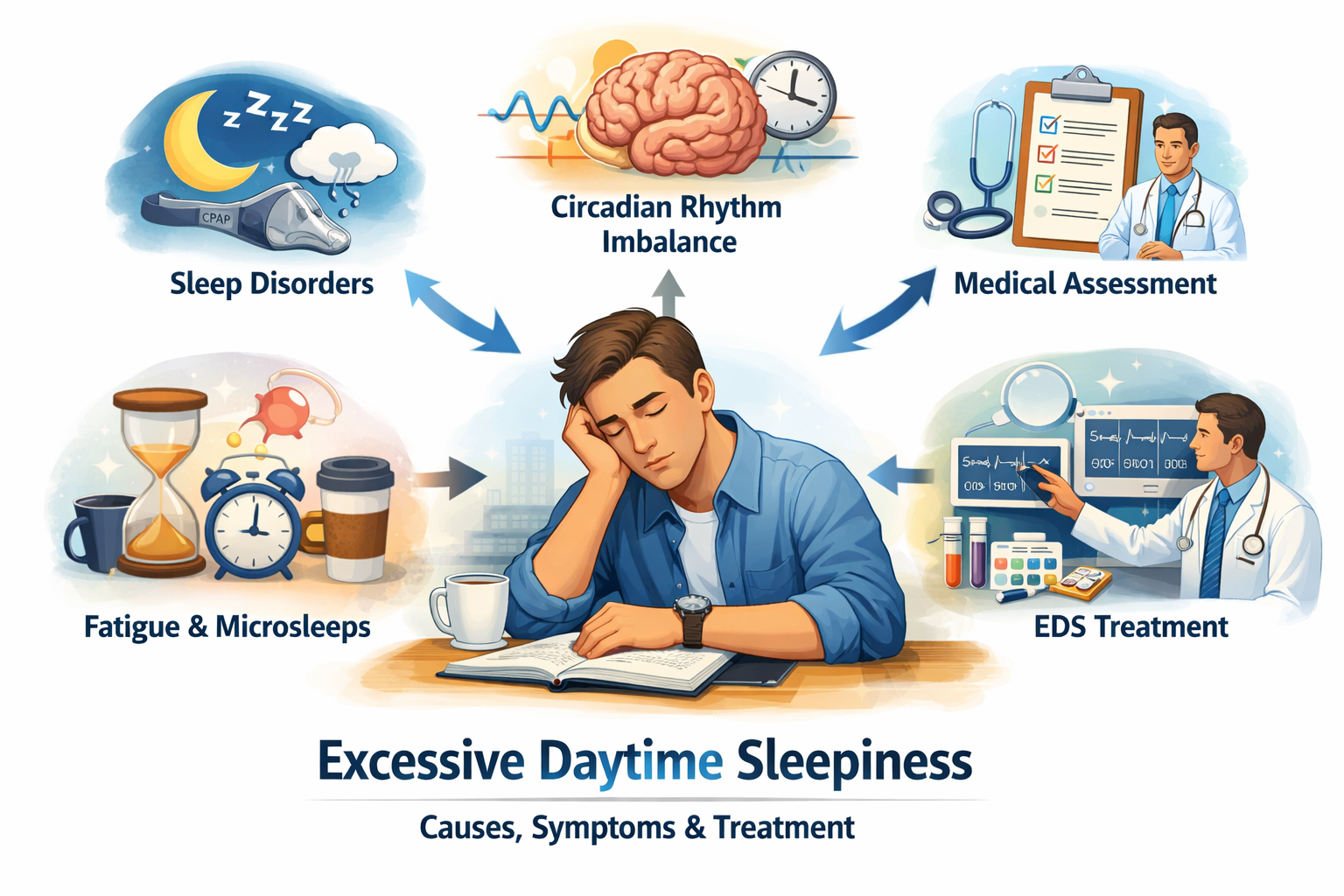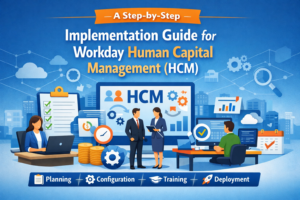Introduction
Excessive Daytime Sleepiness (EDS) is a condition characterized by persistent drowsiness and an overwhelming urge to sleep during waking hours, even after adequate nighttime rest. It affects daily productivity, cognitive performance, workplace safety, and overall quality of life. Proper administration and management of EDS are essential for both clinical professionals and individuals experiencing chronic fatigue.

What Is Excessive Daytime Sleepiness?
EDS is not a disease itself but a symptom often linked to underlying sleep disorders, medical conditions, mental health issues, or lifestyle factors. Unlike normal tiredness, EDS interferes with routine activities such as working, studying, or driving.
Common Causes of Excessive Daytime Sleepiness
- Chronic sleep deprivation
- Obstructive sleep apnea (OSA)
- Narcolepsy and hypersomnia
- Poor sleep hygiene
- Shift work and circadian rhythm disruption
- Depression, anxiety, and stress
- Certain medications and substance use
Symptoms and Warning Signs
- Persistent daytime fatigue
- Difficulty concentrating
- Memory issues
- Irritability and mood changes
- Microsleeps during tasks
- Reduced reaction time
Clinical Evaluation & Diagnosis
Effective administration of EDS begins with accurate diagnosis. Healthcare professionals may use:
- Sleep history and patient questionnaires
- Epworth Sleepiness Scale (ESS)
- Polysomnography (sleep study)
- Multiple Sleep Latency Test (MSLT)
- Actigraphy and sleep logs
Administration & Treatment Strategies
1. Medical Management
- Treating underlying sleep disorders
- Adjusting medications contributing to drowsiness
- Wake-promoting agents (when clinically appropriate)
2. Lifestyle & Behavioral Approaches
- Establishing consistent sleep schedules
- Improving sleep environment
- Reducing caffeine and screen exposure before bed
- Scheduled naps (in controlled settings)
3. Workplace & Daily Function Support
- Flexible work hours
- Strategic breaks
- Light exposure therapy
- Cognitive alertness techniques
Impact of Untreated EDS
Without proper management, excessive daytime sleepiness can increase:
- Workplace accidents
- Road traffic risks
- Academic underperformance
- Mental health complications
- Long-term cardiovascular risks
Prevention & Long-Term Management
- Prioritizing sleep hygiene
- Early screening for sleep disorders
- Regular medical follow-ups
- Stress management and physical activity
Frequently Asked Questions (FAQ Schema Ready)
What is the main cause of excessive daytime sleepiness?
The most common causes include sleep deprivation, sleep apnea, narcolepsy, poor sleep hygiene, and circadian rhythm disturbances.
Is excessive daytime sleepiness a serious condition?
Yes. When persistent, it can significantly affect safety, productivity, and mental health and may indicate an underlying medical disorder.
How is excessive daytime sleepiness diagnosed?
Diagnosis involves clinical evaluation, sleep questionnaires, sleep studies, and sometimes neurological testing.
Can lifestyle changes reduce daytime sleepiness?
Yes. Regular sleep schedules, improved sleep environments, stress reduction, and proper diet can greatly reduce symptoms.
When should someone seek medical help for EDS?
If daytime sleepiness persists despite adequate rest or interferes with daily activities, professional evaluation is recommended.
















 The Digital Hunts – Global Guest Post Site
The Digital Hunts – Global Guest Post Site Contact Us:
Contact Us: